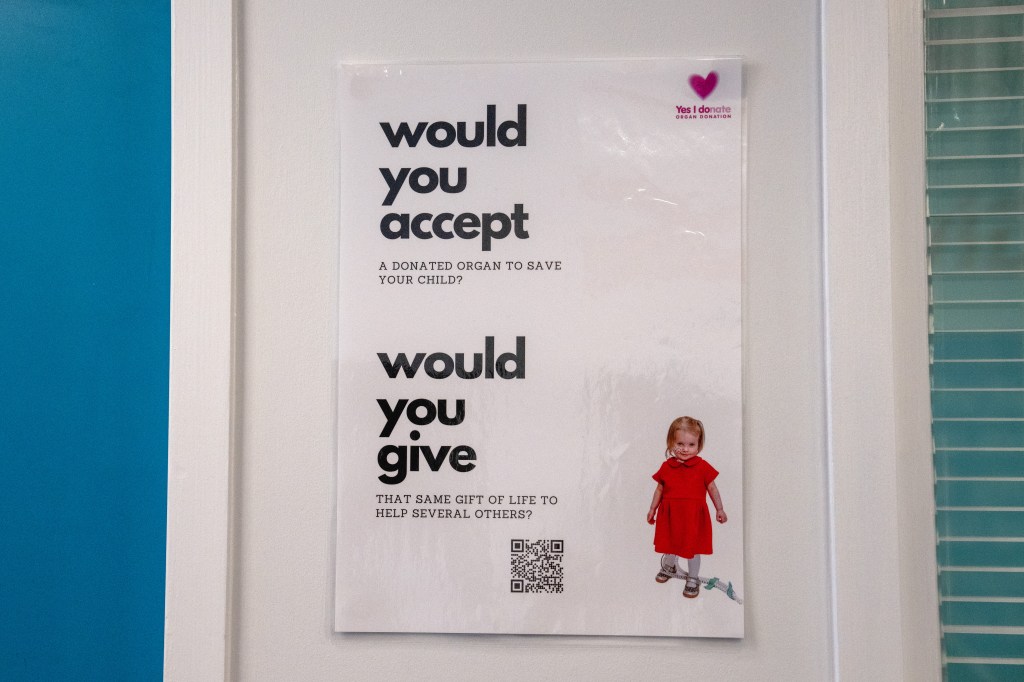A nonprofit that collects donated organs and transports them to transplant patients around the US used its airplanes for other purposes, including travel for employees and for fundraisers, the WSJ reports in a recent investigative piece.
Indiana Donor Network is a member of the United Network for Organ Sharing, the organization contracted by the US federal government to operate the nation’s organ donation system. It operates a fleet of small jets that fly kidneys and other vital organs to desperate patients across the country.
Non-business use of the fleet
The problem is that the jets haven’t just been used for aiding transplant patients, according to the WSJ‘s reporting.
Stephen and Margaret Russell, a married couple who have raised money for Indiana Donor Network, flew the jets between their homes in Indiana and Florida, Stephen Russell said.
He said the couple used the jets to travel between homes in Indiana and near Naples, Florida. “They made it available, so we chose to take the small jet ‘instead of going through all the grief with the [Transportation Security Administration],” he said.
Flight records show eight trips from the jets’ home base in Indianapolis to Naples in 2015, 2016, 2017, 2018 and 2019. In six of those instances, the aircraft flew to Naples from Indianapolis and then returned the same day, a distance of about 1,700 miles and five hours of flight time, round trip.
And in 2016, a jet flew Indiana Donor Network executives and staff to a funeral service for the chief executive’s father, according to people familiar with the matter and flight records viewed by the news bureau.
Federal law violation
If true, Indiana Donor Network’s use of the jets for purposes other than transporting donated organs and human tissue could constitute a violation of federal law and tax rules, and is part of a larger probe by federal prosecutors and other US investigators into the transplant system (as noted below).
In 2014, Indiana Donor Network founded a nonprofit subsidiary called TxJet; it owns three Cessna CJ3+ six-seater jets that fly thousands of miles annually, transporting organs.
Its planes haven’t been reserved exclusively for transporting donor organs. TxJet’s planes have also flown to Austin, Texas, Baltimore and Orlando, Fla., about the times the cities were hosting conferences of the Association of Organ Procurement Organizations, according to flight records.
In June 2016, a TxJet plane flew from Indianapolis to a small, privately owned airport in Griffith, Indiana, not far from Chicago, according to flight records. The plane carried several Indiana Donor Network executives and employees going to the family visitation service for the father of CEO Kellie Tremain, people familiar with the trip said.
Thanks to the flight, the executives and employees had about a 20-minute drive to the funeral home in Crown Point, Indiana, instead of one that would have taken about two hours and 45 minutes.
The Indiana Donor Network spokesman said: “TxJet has never missed, or come close to missing, an organ transport due to a non-mission flight,” in response to the WSJ‘s investigation into this matter.
Reactions from medical, legal pros and Congress
The funeral flight might have violated US tax rules if Indiana Donor Network didn’t report it as taxable noncash compensation, said Phil Hackney, a law professor at the University of Pittsburgh who previously worked on nonprofit tax policy at the Internal Revenue Service.
“They have no business putting a plane in operation in a way that could potentially prevent them from doing the job that it’s supposed to do, which is to get organs to save precious lives,” said Seth Karp, surgeon-in-chief at Vanderbilt University Medical Center in Tennessee, who is a critic of the US organ-procurement system.
Flights could have violated the federal False Claims Act if Indiana Donor Network billed Medicare for costs unrelated to organ transplantation, said Kevin Lamb, a WilmerHale lawyer who specializes in that law.
A flight to a funeral could be permissible, however, if the nonprofit can show that executives had a legitimate business reason for traveling to the city where the funeral was, said Victoria Haneman, a professor and tax law expert at the Creighton University School of Law.
The Oversight and Investigations Subcommittee of the US House Energy and Commerce Committee listened to many disturbing allegations on this topic at a September hearing, in fact. This is the committee that investigates the operations, oversight, and business practices of the organ donation and transplant system.
Speaking at the committee meeting, Committee Chair Cathy McMorris Rodgers (R-WA) said that roughly 100,000 people are on the waiting list for an organ transplant in the US and that 17 people die each day waiting for an organ.
The committee’s members have asked the Department of Health and Human Services and the United Network for Organ Sharing – the group that manages the federal transplant program – for information about past failings of the troubled system as well as ongoing plans to improve it through legislation passed last year.
Congress unanimously passed H.R. 2544, the Securing the US Organ Procurement and Transplantation Network Act, which President Joe Biden signed into law on September 22, 2023.
The legislation allows (for the first time) competitive bidding on multiple contracts to manage the Organ Procurement and Transplantation Network (OPTN), which maintains a national registry to help match organ donors with recipients. It was meant to break the monopoly hold of the United Network for Organ Sharing, or UNOS, which has solely managed the OPTN network under federal contract since the 1980s.
GRIP comment
In this case, it’s helpful that there is federal oversight in this arena that provides an opportunity to hear from experts and stakeholders about how relevant laws are being implemented and what challenges remain, although that was late in coming, after costly inefficiencies, mismanagement, and risk to patient health plagued this critical healthcare sector.
Such government initiatives should ensure transplant programs are equipped with the necessary resources, policies, and best practices to accept the ever-growing surplus of organs recovered and needed.
But at the business level, oversight by a board comprised of impartial and knowledgeable experts and outside auditors or consultants must play a role in maintaining critical surveillance and in holding business leaders accountable for their actions and mission statements.
Businesses, including nonprofits, should leverage data and advances in science and technology to continuously strengthen the systems of monitoring and transparency; there is little excuse for not doing so, unless appeasing wealthy donors outweighs the reputational risk of not complying with the law and one’s own stated policies and priorities.












